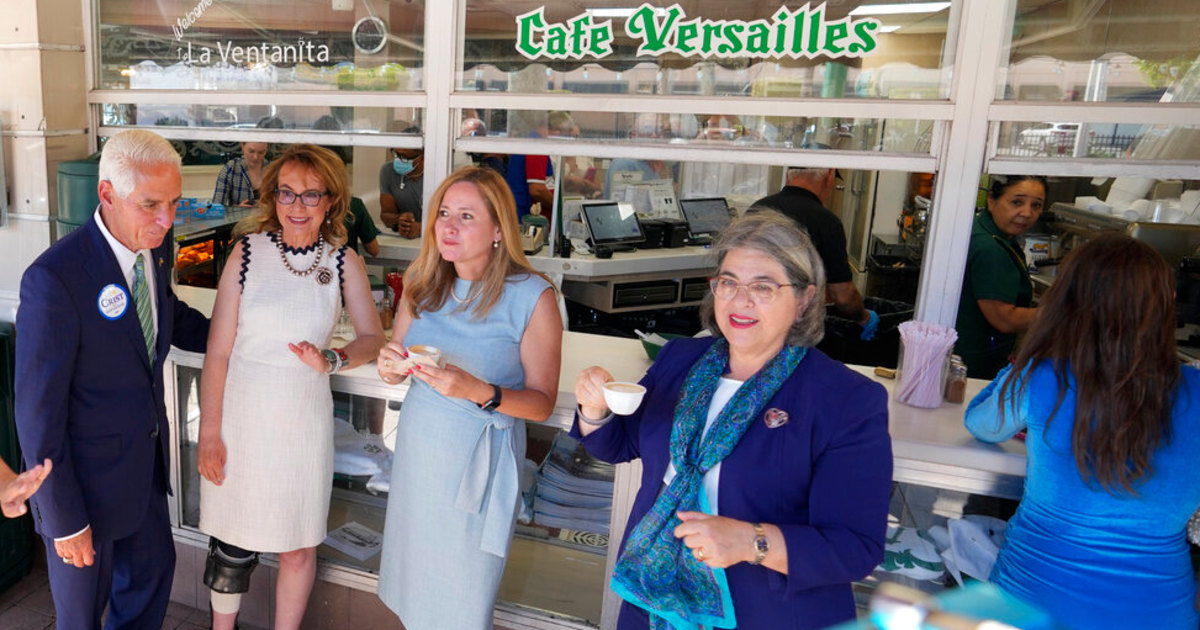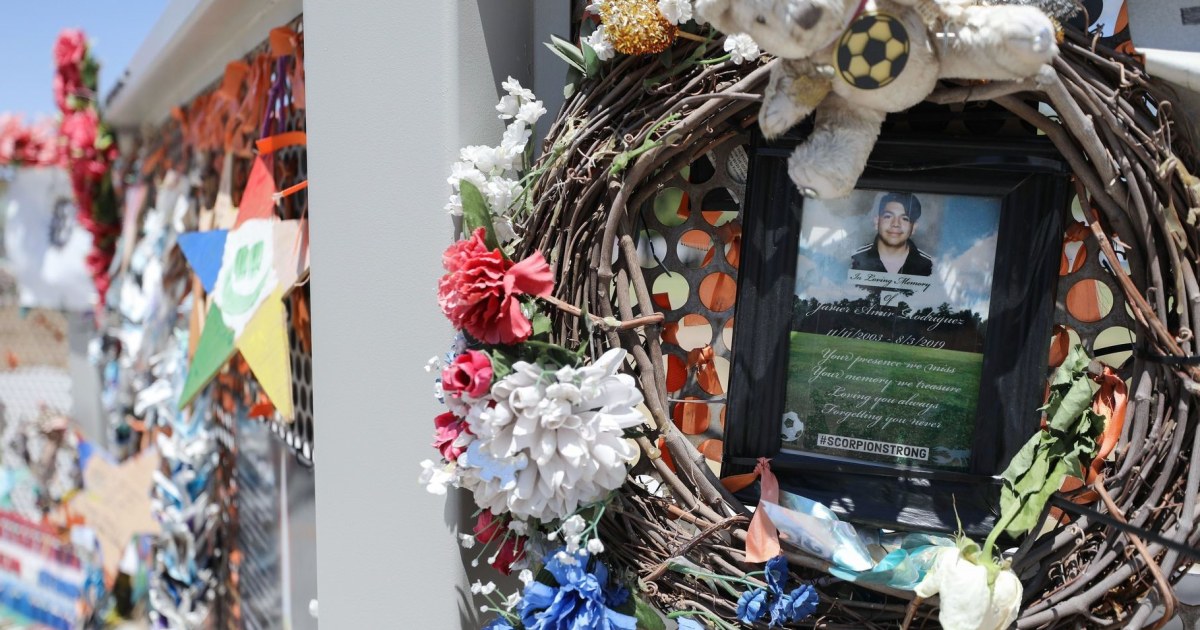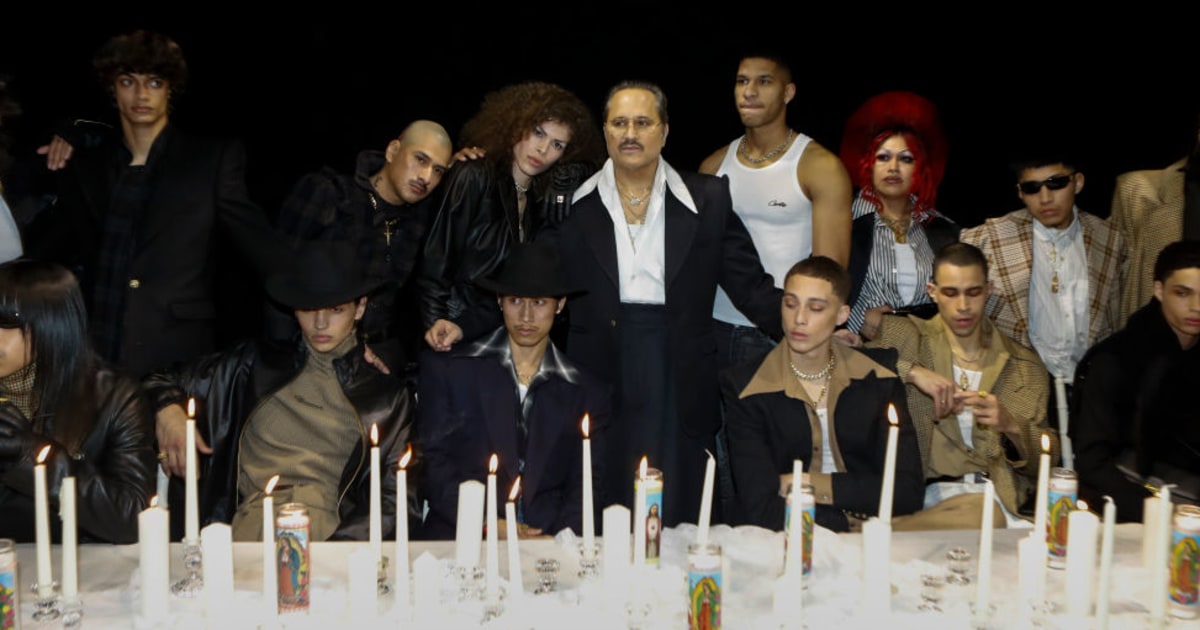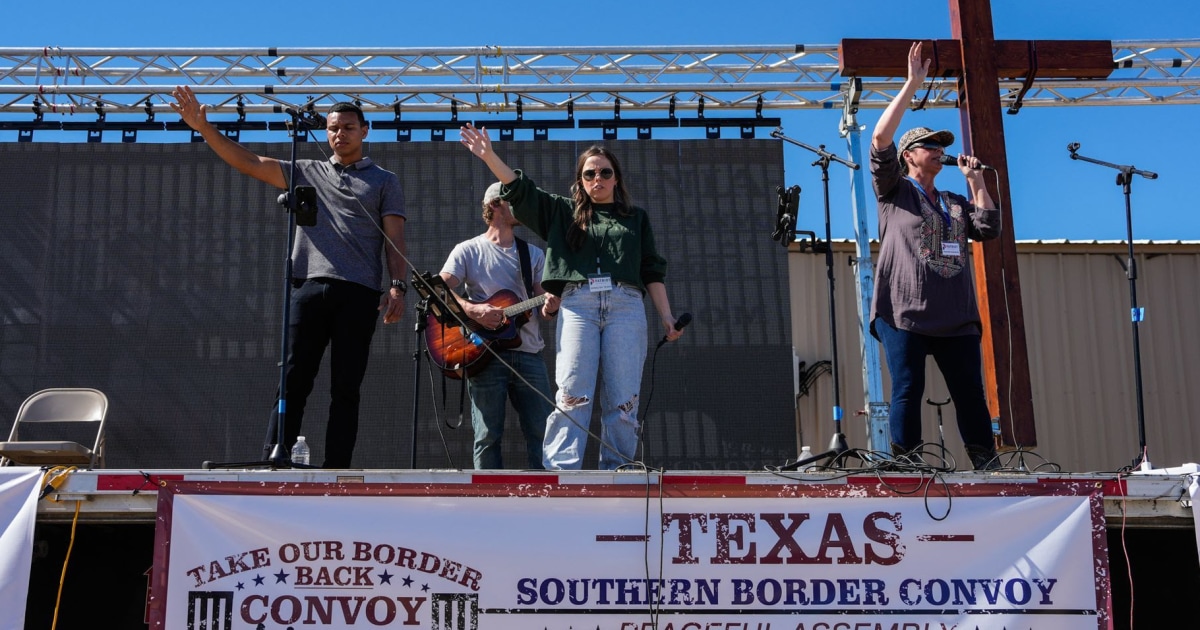Welcome to Axios Latino, a newsletter to tell you every Tuesday and Thursday the stories that have a special impact on Latino communities in the United States and in Latin America. If you are interested in subscribing and receiving the newsletter in your email (
in English
), you can do so
by clicking here
.
You will always find it in Spanish on Noticias Telemundo.
1 Topic: Latinos Behind a Controversial Theory
Richard Delgado, from a Mexican migrant family
, helped develop critical race theory, an academic framework that examines systemic racism in the United States and has become a controversial topic in schools and in local elections.
Why It Matters
: Latino contributions have been overlooked even as the debate around critical race theory has grown.
The theory faces attacks by conservatives who disagree with its central argument: that institutions such as the health and education systems suffer bias because they were developed with laws that differentiated by race or ethnicity.
Delgado, a law professor at the University of Alabama, is considered one of the founders of the CRT, as this theory is known by its acronym in English.
His book
Critical Race Theory: An Introduction
, co-written with Jean Stefancic, is among Amazon's best-selling legal texts.
It has also become the target of anti-CRT activists, who falsely claim that the work is anti-Western.
Photo illustration: Megan Robinson / Axios / Photos courtesy of Richard Delgado and Margaret Montoya
Background
: In the 1970s, Derrick Bell, a former attorney for the advocacy association NAACP, wrote that racial progress in America only occurred when he aligned himself with white interests.
Bell was joined by other legal scholars, including Delgado and other Latino thinkers, who criticized the shortcomings of the legal system, liberalism, and the civil rights movement in addressing racial inequalities.
Delgado and other Latino critics of race, dubbed LatCrits, felt the theory should go beyond the black-white racial binary, pointing to the history of Latino legal segregation and systemic racism that Asian-American Americans and Native people Americans also faced each other throughout the history of the United States.
Important note
: LatCrits went to college when Chicano or Latino studies material was almost non-existent.
So they ended up contributing to the same literature from that schooling, which today even consists of master's and postgraduate studies.
"We use personal stories to point out systemic racism in the legal system," said Margaret Montoya, a Harvard-trained Mexican-American scholar who has taught courses on CRT.
2. Your name can determine if you can rent
Homeowners are turning away prospective tenants
with black and Latino sounding names more often than those with non-Hispanic white names in the 50 largest cities in the United States, according to a working paper from the National Bureau of Economic Research. (NBER, for its acronym in English).
A home for sale in Houston, Texas Brandon Bell / Getty Images
Details
: The study authors programmed a bot to send more than 25,000 rental inquiries to managers or homeowners, using different fictitious tenant names.
On average, the 60% of the names the NBER used that sounded like non-Hispanic white people, such as Erica Cox and Caleb Peterson, got a response from the owners.
Response rates were 2.8% lower for names that are more typically Latino, like Isabella Lopez and Jorge Rodríguez, and 5.6% lower for names that look like black people, like Lamar Williams or Shanice Thomas.
Why it matters
: Discrimination in renting a home puts non-white people at a disadvantage at a time when renting can be more advantageous.
Home prices are skyrocketing and there is volatility in the housing market in many American cities.
The result is that Latino and black tenants have difficult access to certain neighborhoods even in diverse urban areas like Houston and Chicago, according to the study.
Currently, areas with numerous Latino and black residents also face high rates of eviction now that rental moratoriums are ending in several states, leaving those people at risk of homelessness.
Overview
: The findings help explain why a considerable number of neighborhoods have become highly segregated, with consequences on education, income and family even health indicators such as life expectancy.
Yes, but
: Latinos have been gaining ground in home ownership in recent years, and nearly 50% now own property.
3. And the area where you live can raise your blood pressure
Hypertension among Latinos
appears to be strongly related to the neighborhood in which they live, according to a scientific article in the journal Social Science & Medicine.
Photo Illustration: Sarah Grillo / Photo: Spencer Platt / Getty Images
Overall situation
: The six-year study in San Diego found that blood pressure changed for Latinos in part due to factors such as the amount of green space where they live, how walkable the area is, and how many vacant spaces or dilapidated buildings there are.
The researchers studied Latinos who were, on average, 39 years old and were not taking antihypertensive medications.
Hispanic residents of areas with more "social disorder" ended up more likely to have higher systolic and diastolic blood pressure.
Neighborhood-level interventions can reduce stress and consequently heart rate, the study indicates.
For example, improving infrastructure in the area or working to reduce rates of violence and the resulting policing rates can reduce cardiovascular risk among Hispanics / Latinos.
Currently, people with a heart condition such as hypertension are at higher risk of developing severe COVID-19 if they contract coronavirus.
Latinos have been one of the population groups most affected by infections and deaths.
Yes, but
: Hispanic men and women historically have been less likely to die from strokes or cardiac arrest compared to non-Hispanic whites, according to data from the Department of Health.
Please note
: The propensity for hypertension varies among the Latino community, according to a study published last year in the Journal of the American Heart Association.
Women and men of Cuban and Dominican descent have a higher chance of developing high blood pressure, while Mexican-Americans have slightly lower odds.
4. Hate crimes against Hispanics are on the rise in California
Hate crimes against Latino Americans and immigrants
in the state with the highest Hispanic population increased last year, according to recently released official data.
FBI Reveals Latinos Suffer More Hate Attacks Than Any Other Population Group
Nov. 12, 202101: 42
By the numbers
: There were 38% more reported hate crimes against Latinos in 2020 than the previous year in the entire state of California.
Most of the attacks occurred in Los Angeles County, where crimes against Latinos were 58% higher;
they jumped to 106 after having dropped to 67 in 2019.
Within a year, hate crimes against black people also increased in Los Angeles, increasing 35% from 125 to 169, and against people of Asian descent, 76% higher when increasing from 25 to 44 reported incidents.
Yes, but
: The actual numbers could be even higher, because the Los Angeles County report notes that Latinos may be reluctant to report, possibly for fear of becoming targets of immigration authorities.
Data from the California Department of Justice.
Graphic by Jared Whalen / Axios Visuals
The Big Picture
: California data illustrates a growing danger for Latinos in the United States, where they are the largest minority group.
Hate crimes against Latinos have been increasing nationally in the last five years.
In response, the organization MALDEF (Mexican-American Educational and Legal Defense Fund, in Spanish) launched a program specifically to combat prejudice that affects Latinos, seeking to prevent another massacre such as the El Paso shooting in 2019.
5.
Summary of key news in Latin America and the Caribbean
El Salvador must pay compensation
for violating the rights of a woman who lost a pregnancy, the Inter-American Court of Human Rights said Tuesday.
The Inter-American Court condemns El Salvador for the case of a woman sentenced for having an abortion
Dec. 1, 202100: 31
It is the first time that a country's government has been held internationally accountable for obstructing reproductive health care, and it could force a policy change.
The 33-year-old woman, known as Manuela to protect her identity, was illiterate and had sought medical attention after bleeding.
Medical staff assumed she had voluntarily aborted and filed a murder charge.
El Salvador has one of the most restrictive anti-abortion laws in the world: an estimated 40 women are serving prison terms of several decades, including in cases where they had stillbirths and miscarriages.
Honduran
Xiomara Castro
will become the country's first president and the thirteenth in Latin America and the Caribbean.
The results have yet to be validated by electoral authorities within 30 days, but Castro's main rival, Tegucigalpa Mayor Nasry Asfura, has already acknowledged defeat and dismissed any recount or objection.
Castro on Tuesday presented 30 proposals for his first 100 days in office, which will begin in January.
Among his plans is the nationalization of the telephone and electricity companies.
The United States excludes the FARC from its list of terrorist groups
Dec. 1, 202100: 23
The FARC, Colombia's disbanded guerrilla force
that is now a political party, is no longer designated as a terrorist organization by the United States, which revoked that appointment on Tuesday.
The Revolutionary Armed Forces of Colombia were the main non-governmental force in a five-decade conflict that left more than 260,000 people dead and at least 80,000 missing.
In January the group changed its name to Comunes to try to distance itself from dissident members who still carry weapons and have kept the acronym FARC, five years after the signing of a peace agreement.
6. 🐢 Farewell smile: The art of decontaminating beaches
On a Salvadoran beach usually full of garbage
, a group set out not only to collect it but to do something with it: a huge monument to the sea turtle, whose life is endangered by the discarded plastics that end up in the sea.
Residents on a beach in El Salvador create a giant tortoise with recycled plastic waste
Nov. 12, 202101: 29
More details
: The turtle sculpture is made from 3,500 plastic bottles, most of which were collected from the same beach that it is located on, and then treated as part of the recycling process so that they could be woven together like cloth.
The purpose is for visitors to El Zonte beach to have an important reminder of what would be affected if they litter where it is not intended.
El Salvador has a coastline almost 200 miles long, with beaches that increasingly attract surfers from around the world.
But many of those beaches are riddled with plastic pollution, as are 80% of the country's rivers.
Thanks for reading us
.
We returned on Tuesday
.
Do you want to see any of the most recent previous editions?
The people behind the death toll at the border
Silencing Latino voices and books
The Latino story of Thanksgiving
The purchasing power of Latinas
Serve, and live as a veteran, being Hispanic
The fight for 'green' money









